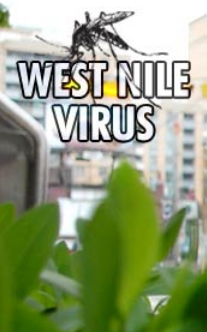
This is an update to my previous blog Low Risk of West Nile Virus Infection in Toronto.
Today, Toronto’s Associate Medical Officer of Health reports the first human case of illness due to the West Nile Virus (WNV) with the following details:
- 36 year-old male has been diagnosed with West Nile Virus (WNV);
- he was hospitalized and is recovering at home.
Symptoms of West Nile Virus (WNV) infection include:
- stiff neck,
- confusion,
- severe headache and
- sudden sensitivity to light.
Here are some good news about West Nile Virus:
- risk of becoming infected with WNV is low
- 80 per cent of people bitten by an infected mosquito do not get sick and
- fewer than one per cent become seriously ill
- number of individuals diagnosed with WNV has been declining since the virus was first diagnosed in Toronto in 2002.
- last year, there was one human case reported in Toronto,
- there were no cases in 2009 and in 2008
- the last death in Toronto from the West Nile Virus was in 2005.
However, West Nile virus-infected mosquitoes have been found in 68 traps so far this summer, up from 19 positive traps last summer.
In any case, Toronto recommends the following personal protection measures:
- use a mosquito repellent containing DEET
- wear light-coloured clothing and cover up in areas where mosquitoes are present
- take precautions, especially in early morning and early evening, when mosquitoes are most active
- repair any holes in door and window screens
- remove standing water around your home.
Furthermore, the City of Toronto’s West Nile Virus prevention program involves treating catch basins and other areas of standing water with larvicide to reduce mosquito breeding.
Please click here for more information on larviciding locations in Toronto.
Toronto, Ontario, Canada
News Release
September 2, 2011
Toronto reports first human case of West Nile Virus
A 36 year-old male has been diagnosed with West Nile Virus (WNV), and is the first case of illness due to the virus reported in Toronto this year. The individual was hospitalized and is recovering at home.
The number of individuals diagnosed with WNV has been declining since the virus was first diagnosed in Toronto in 2002. Last year, there was one human case reported in Toronto, and there were no cases in 2009 and in 2008. The last death in Toronto from the virus was in 2005.
“Although the number of human cases has been declining steadily in the past few years, it is still important to take precautions,” said Dr. Herveen Sachdeva, Associate Medical Officer of Health. “Most human cases of West Nile Virus are contracted at this time of year.”
The following personal protection measures are recommended:
• use a mosquito repellent containing DEET
• wear light-coloured clothing and cover up in areas where mosquitoes are present
• take precautions, especially in early morning and early evening, when mosquitoes are most active
• repair any holes in door and window screens
• remove standing water around your home.
The overall risk of becoming infected with WNV is low. Close to 80 per cent of people bitten by an infected mosquito do not get sick and fewer than one per cent become seriously ill. Symptoms include stiff neck, confusion, severe headache and sudden sensitivity to light.
Mosquito traps are placed throughout the city as part of the WNV surveillance program, and the mosquitoes are collected and tested weekly. Virus-infected mosquitoes have been found in 68 traps so far this summer, up from 19 positive traps last summer. As part of the City of Toronto’s WNV prevention program, catch basins and other areas of standing water are treated with larvicide to reduce mosquito breeding. More information on larviciding locations is available at http://www.toronto.ca/health/westnile.
Toronto is Canada’s largest city and sixth largest government, and home to a diverse population of about 2.6 million people. Toronto’s government is dedicated to delivering customer service excellence, creating a transparent and accountable government, reducing the size and cost of government and building a transportation city. For information on non-emergency City services and programs, Toronto residents, businesses and visitors can dial 311, 24 hours a day, 7 days a week.
——————————————–
You might also want to know:
